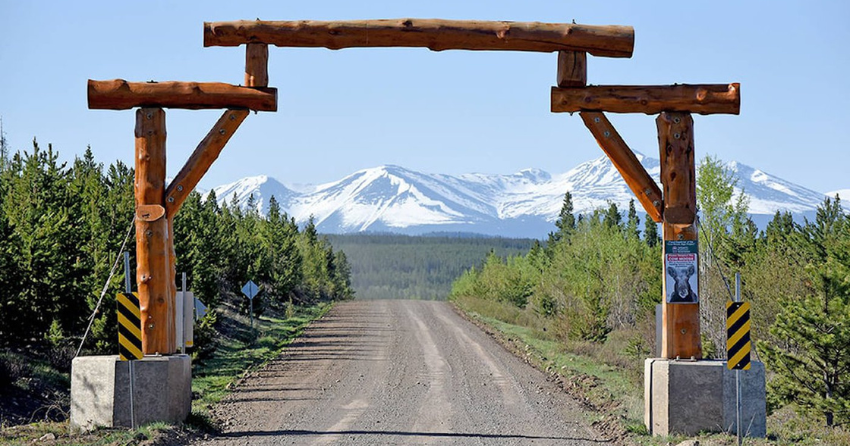Listen to the article
Aboriginal Title Declarations Not a Threat to Private Property, Tŝilhqot’in Nation States
The Tŝilhqot’in National Government (TNG) has issued a call for clarity from provincial leaders regarding Aboriginal title, urging governments to counter what they describe as widespread misinformation and fear-mongering surrounding Indigenous land rights.
“It’s been working well, it’s been happening for 11 years…I don’t know why BC is not coming forward and sharing those facts,” said Jenny Philbrick, executive director of the TNG, referring to the nation’s landmark title declaration.
The Tŝilhqot’in Nation made Canadian legal history in 2014 when the Supreme Court of Canada recognized their Aboriginal title to approximately 1,900 square kilometers within Xeni Gwet’in territory, one of six communities under TNG governance. This precedent-setting case marked the first time a First Nation in Canada won a court declaration affirming their inherent rights to control and determine land use within their traditional territories.
Philbrick emphasized that following the 2014 ruling, careful frameworks were developed to ensure continuity of recreational sites, provincial parks, and campgrounds within the Title Area. These agreements also protected existing private property owners, allowing them to continue owning, selling, and mortgaging their properties without interference.
Despite this successful coexistence model, tensions have escalated as other Indigenous nations pursue similar recognition. The Cowichan Tribes (Quw’utsun Nation) recently won a significant title case, prompting immediate pushback from provincial authorities, including BC’s Attorney General Niki Sharma, who announced plans to appeal the Supreme Court of BC’s August 7, 2025 decision.
The TNG alleges that Premier David Eby and Opposition Leader John Rustad are exacerbating concerns by “playing politics” and “generating fear and misinformation” rather than clarifying the actual implications of Aboriginal title declarations.
“The Tŝilhqot’in Nation, with a court declaration of Aboriginal title, has never targeted private property and has no intention of doing so. Private lands were excluded from the declaration of title,” the TNG stated in a November 6 press release. The Quw’utsun Nation similarly clarified that their recent court victory “has not and does not challenge the effectiveness or validity of any title held by individual private landowners.”
Philbrick expressed frustration that the province’s responses contradict reconciliation efforts. “Indigenous people are not trying to kick anybody out of their house or land, we know how it feels,” she said, advocating for better communication and partnership between the provincial government and First Nations pursuing title declarations.
“It can be done,” Philbrick asserted regarding the potential for other nations to achieve Aboriginal title while respecting all stakeholders’ interests. “Premier Eby knows how it’s been going in a positive way. We just want him to double down and say this is a good thing.”
Spencer Chandra Herbert, Minister of Indigenous Relations and Reconciliation, provided a statement indicating the government would continue working with First Nations through various agreements while ensuring transparency and collaboration with all British Columbians.
“We are committed to respecting First Nations’ rights, and ensuring certainty for property owners, because it increases shared prosperity for all,” Herbert wrote, adding that “The law has been clear for decades – it is our responsibility to work together. None of us are going anywhere.”
Meanwhile, BC Conservative leaders have adopted a more confrontational stance. Rustad and the party’s Deputy Critic Scott McInnis have demanded a pause on all Aboriginal title negotiations until the Cowichan appeal concludes, claiming Premier Eby is conducting secretive negotiations that could potentially impact private properties.
The TNG also criticized recent provincial legislation (Bills 14 and 15) and Rustad’s call to repeal the Declaration on the Rights of Indigenous Peoples Act, characterizing these actions as direct threats to Indigenous human rights and security.
Nits’ilʔin (Chief) Otis Guichon, TNG tribal chief, reinforced that First Nations have consistently demonstrated respect for their neighbors’ private property rights. “Those that lead with fear aren’t looking for things to improve—they just want to score easy political points at the expense of the most marginalized and vulnerable people in this province,” he said, urging all parties to engage in respectful dialogue.
As this complex issue continues to evolve, the TNG’s position highlights the gap between Indigenous experiences with title implementation and the political discourse surrounding it, emphasizing the need for fact-based conversations about reconciliation and land rights in British Columbia.
Fact Checker
Verify the accuracy of this article using The Disinformation Commission analysis and real-time sources.




10 Comments
This highlights the ongoing challenges in reconciling Aboriginal rights with existing land use and ownership. I hope the BC government takes steps to provide clarity and address the Tŝilhqot’in Nation’s concerns in good faith.
The Tŝilhqot’in Nation’s landmark title declaration was a significant legal victory. It’s concerning to hear they feel the provincial government is not being forthright in communicating the realities and implications of this ruling.
Effective communication and collaboration between governments and Indigenous communities is crucial for building trust and ensuring fair, sustainable land use policies.
It’s concerning to hear the Tŝilhqot’in Nation feels the BC government is not properly communicating the implications of their landmark legal victory. Transparent, good-faith engagement is needed to address this issue.
The Tŝilhqot’in Nation’s title declaration was a major step forward for Indigenous land rights in Canada. The provincial government should take steps to educate the public and address any misinformation or fears around this ruling.
Proactive, inclusive communication and collaboration will be crucial to finding solutions that respect the rights and interests of all affected parties.
The Tŝilhqot’in Nation’s call for transparency is understandable given the precedent-setting nature of their title declaration. Proactive, open communication from the provincial government could help allay fears and misinformation.
Respectful dialogue and compromise will be key to finding solutions that balance Indigenous rights with other stakeholder interests.
This is a complex issue with valid concerns on both sides. I hope the BC government and First Nations can find a path forward that respects Indigenous rights while also providing clarity for private property owners.
Agreed, there needs to be open and transparent dialogue to address misunderstandings and find mutually acceptable solutions.